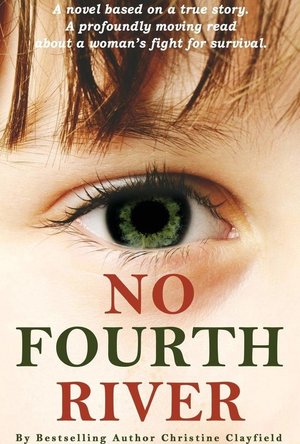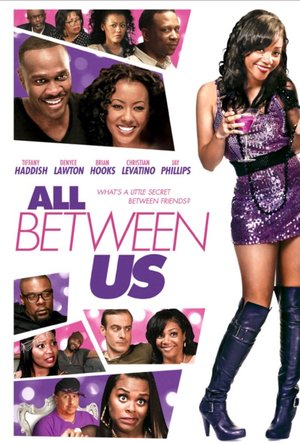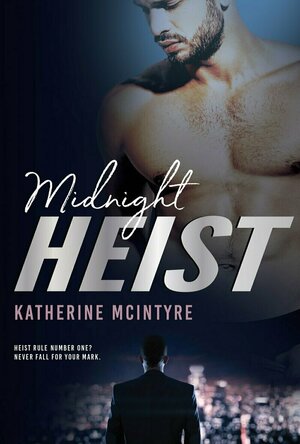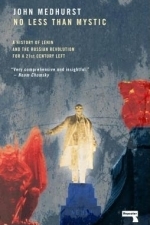Search
Search results
Full review can be found on: www.diaryofdifference.com
No Fourth River is a very powerful story about swimming up to surface, when the world is against you. A story about child abuse unlike anything else, and one very determined woman.
This is the second Audiobook I have listened to, with the first being Ready Player One. Two completely different experiences. It was disturbing listening to such a painful story for a while, and it took me a long time to finish it.
The story of Christine is so sad and so unique. She is being molested by her father in ways you could never imagine. She goes to boarding school and she is being bullied even by the nurses. She wets her bed every single day. And bad things keep happening, one after another, after another, until she is in her thirties and almost dies being beaten to almost-death by her husband.
And then she decides to change her life and to be the most successful woman.
At first, when I read the synopsis, the thing that thrilled me was the ill mother that suffered from dementia. I thought this book will revolve and focus on this point, but it didn’t. And I was very disappointed.
Then I manned up, and decided to continue listening, despite my unhappiness. It was a decent story, a powerful, motivational one, but not realistic. And it hurts me saying this, because this book is autobiography. Of course these terrible things happened. But I didn’t felt for the woman. Not in a way I usually would.
The writing was just about average, or maybe the woman reading in the audiobook was to blame. I will leave that up to you, who have listened to the audiobook, or choose to do so.
The character of this woman was honest, but I still can’t imagine how and why a person would stick to people that keep hurting her, despite everything. Even if love, even if forever after, I would not stay one more day with a person if he, for one moment, loses control and raises a hand over me. I would be out of the house in a minute, never returning back. A man would never hurt a woman. No matter what she could do, or couldn’t do. I can argue for hours, and I can admit being wrong, and I can cope with being yelled at, because I have done something stupid. But the moment the line is crosses, I would be out – FOREVER.
If you guys are looking for a story that will keep you thinking about whether you’ve made right decisions, this is a great book for you. A powerful success story of a woman that was brave enough to say NO (after a few years, that is) and brave enough to start building a new life. I recommend it, even though I personally did not really enjoy it a lot.
I have won this Audiobook as a giveaway from LibraryThing, and all my opinions are honest and completely unbiased.
No Fourth River is a very powerful story about swimming up to surface, when the world is against you. A story about child abuse unlike anything else, and one very determined woman.
This is the second Audiobook I have listened to, with the first being Ready Player One. Two completely different experiences. It was disturbing listening to such a painful story for a while, and it took me a long time to finish it.
The story of Christine is so sad and so unique. She is being molested by her father in ways you could never imagine. She goes to boarding school and she is being bullied even by the nurses. She wets her bed every single day. And bad things keep happening, one after another, after another, until she is in her thirties and almost dies being beaten to almost-death by her husband.
And then she decides to change her life and to be the most successful woman.
At first, when I read the synopsis, the thing that thrilled me was the ill mother that suffered from dementia. I thought this book will revolve and focus on this point, but it didn’t. And I was very disappointed.
Then I manned up, and decided to continue listening, despite my unhappiness. It was a decent story, a powerful, motivational one, but not realistic. And it hurts me saying this, because this book is autobiography. Of course these terrible things happened. But I didn’t felt for the woman. Not in a way I usually would.
The writing was just about average, or maybe the woman reading in the audiobook was to blame. I will leave that up to you, who have listened to the audiobook, or choose to do so.
The character of this woman was honest, but I still can’t imagine how and why a person would stick to people that keep hurting her, despite everything. Even if love, even if forever after, I would not stay one more day with a person if he, for one moment, loses control and raises a hand over me. I would be out of the house in a minute, never returning back. A man would never hurt a woman. No matter what she could do, or couldn’t do. I can argue for hours, and I can admit being wrong, and I can cope with being yelled at, because I have done something stupid. But the moment the line is crosses, I would be out – FOREVER.
If you guys are looking for a story that will keep you thinking about whether you’ve made right decisions, this is a great book for you. A powerful success story of a woman that was brave enough to say NO (after a few years, that is) and brave enough to start building a new life. I recommend it, even though I personally did not really enjoy it a lot.
I have won this Audiobook as a giveaway from LibraryThing, and all my opinions are honest and completely unbiased.
Darren (1599 KP) rated All Between Us (2018) in Movies
Jun 20, 2019
Story: All Between Us starts as engaged couple Clara (Lawton) and Ray (Hooks) are hosting a diner party for family and friends to make their big announcement. Clara’s parents will be meeting Ray for the first time and Clara’s best friend Mishawn (Haddish) has started to settle down with Ty (Levatino).
As the night unfolds secrets have been coming out and now the mistakes of the past will come to life and will need to be worked through for the happiness of the people involved.
Thoughts on All Between Us
Characters – Clara is one of the hosts for the party, it is her family that will be attending the party with her big announcement, she must bring out the best in Ray for the first-time meeting, knowing her love can make him stronger. Ray is the fiancée of Clara a writer for profession that is nervous to meet his future parents-in-law knowing they are judgemental and already don’t approve of him. He spends the night getting verbal abuses from the family. Mishawn is Clara’s best friend, the one that knows the news she wants to tell and has turned her party ways into a more stable relationship with Ty. We have plenty of other characters are this party with Clara’s loud brother who has always been against most people and her judgemental father that spends the night putting Ray down. They all work for different moments in the film.
Performances – This is a great ensembled cast giving us strong performances throughout, the biggest known star is Tiffany Haddish after last years ‘Girls Trip’ who only gives us glimpses of the pure energy she bought to that film, she must take the back burner at times in this film. Denyce Lawton and Brian Hooks are great too, while Esau McGraw gives us a character we grow to dislike early.
Story – The story brings friends and family together for a couple’s announcement, with the whole story taking place over this one evening. This does give us a real-time feel with the story and the secrets coming out push relationships to limits. The story does keep things simple and each character does fit into a group even being individual enough. This is a story that could easily be a play too which is something I like to point out with this style of storytelling.
Comedy – The comedy in the film does work for the most part, the funniest moments do hit well, it is the small jokes that can sometimes miss. Freddy does get the most laughs, mostly for the wrong reasons because of his characters race related opinions.
Settings – The film takes place in one location, the apartment which plays out well because this is the only place we need to be for the events unfolding.
Scene of the Movie – Standing up to Mr Tillman.
That Moment That Annoyed Me – The over use of the N-word.
Final Thoughts – This is a wonderful ensembled cast performance, the solo night gives us the laughs we need and the truths show us how lives can be hiding something from everyone.
Overall: Enjoyable comedy.
https://moviesreview101.com/2018/05/14/all-between-us-2018/
As the night unfolds secrets have been coming out and now the mistakes of the past will come to life and will need to be worked through for the happiness of the people involved.
Thoughts on All Between Us
Characters – Clara is one of the hosts for the party, it is her family that will be attending the party with her big announcement, she must bring out the best in Ray for the first-time meeting, knowing her love can make him stronger. Ray is the fiancée of Clara a writer for profession that is nervous to meet his future parents-in-law knowing they are judgemental and already don’t approve of him. He spends the night getting verbal abuses from the family. Mishawn is Clara’s best friend, the one that knows the news she wants to tell and has turned her party ways into a more stable relationship with Ty. We have plenty of other characters are this party with Clara’s loud brother who has always been against most people and her judgemental father that spends the night putting Ray down. They all work for different moments in the film.
Performances – This is a great ensembled cast giving us strong performances throughout, the biggest known star is Tiffany Haddish after last years ‘Girls Trip’ who only gives us glimpses of the pure energy she bought to that film, she must take the back burner at times in this film. Denyce Lawton and Brian Hooks are great too, while Esau McGraw gives us a character we grow to dislike early.
Story – The story brings friends and family together for a couple’s announcement, with the whole story taking place over this one evening. This does give us a real-time feel with the story and the secrets coming out push relationships to limits. The story does keep things simple and each character does fit into a group even being individual enough. This is a story that could easily be a play too which is something I like to point out with this style of storytelling.
Comedy – The comedy in the film does work for the most part, the funniest moments do hit well, it is the small jokes that can sometimes miss. Freddy does get the most laughs, mostly for the wrong reasons because of his characters race related opinions.
Settings – The film takes place in one location, the apartment which plays out well because this is the only place we need to be for the events unfolding.
Scene of the Movie – Standing up to Mr Tillman.
That Moment That Annoyed Me – The over use of the N-word.
Final Thoughts – This is a wonderful ensembled cast performance, the solo night gives us the laughs we need and the truths show us how lives can be hiding something from everyone.
Overall: Enjoyable comedy.
https://moviesreview101.com/2018/05/14/all-between-us-2018/
<i>This eBook was provided by the author in exchange for an honest review </i>
After being out of print for sixty years, <i>Ilsa</i>, one of Madeleine L’Engle’s first novels has been republished, giving readers the chance to discover the rare, little known story. L’Engle is recognized as the author of <i>A Wrinkle in Time</i> and a selection of young adult novels, however <i>Ilsa</i> is an example of L’Engle’s ability to pen a much darker story.
Fundamentally a love story, <i>Ilsa</i> is set in America during the first half of the 1900s. Whilst this gives it an historical context to current readers, it would have been the present day when the story was originally published. The narrator, Henry Porcher, first meets the titular character at the age of ten, shortly before his family whisks him away to temporary accommodation many miles away. In this brief introduction, Henry falls in love with Isla, despite her being three years older than him. From this point on, Henry’s mind and heart are filled with thoughts about Ilsa, and is saddened that his family possess antagonistic opinions about her and her father.
Henry and Ilsa come from entirely different backgrounds. The Porcher’s are a large family with an air of superiority, a stark contrast to the humble lodgings of Ilsa and her naturalist father, Dr. Brandes. Whilst Henry’s parents look down on Dr. Brandes, Ilsa views the Porcher’s as rich and biggity. Yet, Henry and Ilsa are happy to be friends – a <i>Romeo and Juliet</i>-esque relationship, unfortunately with romantic attraction only falling on one side.
Despite his hopes, Henry realizes that Ilsa will never be his. By the age of twenty-four, he already feels like a failure, yet he continues to shadow and worship Ilsa without a care to how his life turns out. Henry painstakingly witnesses Ilsa’s transformation from girl to woman, marrying a man who does not deserve her, becoming a mother, a widow, and finally suffering health wise. Forfeiting his chance of career and marriage, Henry experiences the darker side of love, and pays the price of unrequited love.
For a story about love,<i> Ilsa </i>contains no romance or passionate scenes, and once Henry loses his childhood naivety, it begins to become rather dull. The reader will initially anticipate a happy ending, but the lack of a climax reveals that this will not be forthcoming. <i>Ilsa</i> is far more interesting at the beginning of the novel, a time when anything could happen, but becomes increasingly disheartening as it goes along.
Having not read the celebrate author before, I have no idea how <i>Ilsa</i> compares to the more popular of L’Engle’s novels. Personally, I am not impelled to seek out any of her other books, however that does not mean I deem<i> Ilsa</i> terrible. For fans of L’Engle, this book is certainly worth seeking out, particularly this edition, which contains a brief biography and selection of photographs of the author throughout her life.
After being out of print for sixty years, <i>Ilsa</i>, one of Madeleine L’Engle’s first novels has been republished, giving readers the chance to discover the rare, little known story. L’Engle is recognized as the author of <i>A Wrinkle in Time</i> and a selection of young adult novels, however <i>Ilsa</i> is an example of L’Engle’s ability to pen a much darker story.
Fundamentally a love story, <i>Ilsa</i> is set in America during the first half of the 1900s. Whilst this gives it an historical context to current readers, it would have been the present day when the story was originally published. The narrator, Henry Porcher, first meets the titular character at the age of ten, shortly before his family whisks him away to temporary accommodation many miles away. In this brief introduction, Henry falls in love with Isla, despite her being three years older than him. From this point on, Henry’s mind and heart are filled with thoughts about Ilsa, and is saddened that his family possess antagonistic opinions about her and her father.
Henry and Ilsa come from entirely different backgrounds. The Porcher’s are a large family with an air of superiority, a stark contrast to the humble lodgings of Ilsa and her naturalist father, Dr. Brandes. Whilst Henry’s parents look down on Dr. Brandes, Ilsa views the Porcher’s as rich and biggity. Yet, Henry and Ilsa are happy to be friends – a <i>Romeo and Juliet</i>-esque relationship, unfortunately with romantic attraction only falling on one side.
Despite his hopes, Henry realizes that Ilsa will never be his. By the age of twenty-four, he already feels like a failure, yet he continues to shadow and worship Ilsa without a care to how his life turns out. Henry painstakingly witnesses Ilsa’s transformation from girl to woman, marrying a man who does not deserve her, becoming a mother, a widow, and finally suffering health wise. Forfeiting his chance of career and marriage, Henry experiences the darker side of love, and pays the price of unrequited love.
For a story about love,<i> Ilsa </i>contains no romance or passionate scenes, and once Henry loses his childhood naivety, it begins to become rather dull. The reader will initially anticipate a happy ending, but the lack of a climax reveals that this will not be forthcoming. <i>Ilsa</i> is far more interesting at the beginning of the novel, a time when anything could happen, but becomes increasingly disheartening as it goes along.
Having not read the celebrate author before, I have no idea how <i>Ilsa</i> compares to the more popular of L’Engle’s novels. Personally, I am not impelled to seek out any of her other books, however that does not mean I deem<i> Ilsa</i> terrible. For fans of L’Engle, this book is certainly worth seeking out, particularly this edition, which contains a brief biography and selection of photographs of the author throughout her life.
156Reviews (7 KP) rated True History of the Kelly Gang (2019) in Movies
May 1, 2020
One of the main things that divides opinion on Ned Kelly is was he on the side of good or bad? Some see him as a kind of freedom fighter, standing up to the British, who at the time that looked to suppress and demean the Australian people. Some see him as a criminal, who murdered innocent people for reasons known only to him. Both of these opinions may be true, neither of them might be, but it's one hell of a gamble to base a film on someone that divides opinion that much.
It's a gamble that doesn't pay off, the team behind the film try to sell it as a punk-esque, spit in the face of authority tale of a guy standing up against the establishment. The soundtrack is on-point, but that's about it. George Mackay (as Ned Kelly) does his best to sell it, but the film-makers never truly drive home the idea that this was a man of the people, someone speaking up for the downtrodden, instead Ned spends most of the films run-time with his family in their home, seemingly away from civilisation entirely, taking away from the Robin Hood-like mythology of the man. Without any other characters, Robin Hood is just a man who steals from people. A story about a thief, who becomes a murderer, who becomes a gang leader who incites others to kill, doesn't exactly evoke much sympathy, especially as these are based on real life events. Even if the film denies this by stating “Nothing you are about to see is true” at the start, despite “True History” being in the title of the film.
Some of the cast do their best to with what they are given, but some fall short, and some are just wilfully underused, Thomasin McKenzie, who has been great in recent films such as JoJo Rabbit and Leave No Trace is barely given anything to do other than play “The Woman” despite many important events revolving around her, opposite to this is Charlie Hunnam, who is given ample things to do, but seems to still be playing the same character from his recent The Gentleman performance. George Mackay is a force to be reckoned with, but its a performance that would be better placed in a sex pistols biopic than in 1800's Australia. The shining performance in this is Nicolas Hoult, shaking off his nice guy image to play the corrupt Constable Fitzpatrick, who seems to delight in the power he has and when events stop going Fitzpatrick's way, Hoult commits to playing a man on the edge of completely losing control with surprising conviction and menace, his interrogation scenes being and uncomfortable highlight in an otherwise unconvincing film.
With no mention of the two years Kelly spent on the run, being hidden from the police by a network of sympathisers, and by showing his plight as a very personal experience instead of showing it as an example of the culture at the time, the film misses an opportunity to make a legend of the man, and instead falls short of greatness.
It's a gamble that doesn't pay off, the team behind the film try to sell it as a punk-esque, spit in the face of authority tale of a guy standing up against the establishment. The soundtrack is on-point, but that's about it. George Mackay (as Ned Kelly) does his best to sell it, but the film-makers never truly drive home the idea that this was a man of the people, someone speaking up for the downtrodden, instead Ned spends most of the films run-time with his family in their home, seemingly away from civilisation entirely, taking away from the Robin Hood-like mythology of the man. Without any other characters, Robin Hood is just a man who steals from people. A story about a thief, who becomes a murderer, who becomes a gang leader who incites others to kill, doesn't exactly evoke much sympathy, especially as these are based on real life events. Even if the film denies this by stating “Nothing you are about to see is true” at the start, despite “True History” being in the title of the film.
Some of the cast do their best to with what they are given, but some fall short, and some are just wilfully underused, Thomasin McKenzie, who has been great in recent films such as JoJo Rabbit and Leave No Trace is barely given anything to do other than play “The Woman” despite many important events revolving around her, opposite to this is Charlie Hunnam, who is given ample things to do, but seems to still be playing the same character from his recent The Gentleman performance. George Mackay is a force to be reckoned with, but its a performance that would be better placed in a sex pistols biopic than in 1800's Australia. The shining performance in this is Nicolas Hoult, shaking off his nice guy image to play the corrupt Constable Fitzpatrick, who seems to delight in the power he has and when events stop going Fitzpatrick's way, Hoult commits to playing a man on the edge of completely losing control with surprising conviction and menace, his interrogation scenes being and uncomfortable highlight in an otherwise unconvincing film.
With no mention of the two years Kelly spent on the run, being hidden from the police by a network of sympathisers, and by showing his plight as a very personal experience instead of showing it as an example of the culture at the time, the film misses an opportunity to make a legend of the man, and instead falls short of greatness.

NeuroNation - Brain Training
Education and Games
App
Improve your brain performance effectively with NeuroNation brain training. Create your brain's...
Debbiereadsbook (1647 KP) rated Midnight Heist (Outlaws #1) in Books
Mar 1, 2021
Fabulous start to this series, and to Ms McIntyre's MM path. Keep em coming!
Independent reviewer for Archaeolibrarian, I was gifted my copy of this book.
Grif needs to infiltrate Dan Torres' company to ruin it. But one look at Dan and Grif knows he's all kinds of innocent, but equally dangerous. Dan knows there's something bad going on in his company, now he's taken over from his father, but the Board is all old men stuck with old opinions and old ways. When Dan finds out what Grif has planned, he sees it as a perfect way to get what he wants. But what happens after?
So! Ms McIntyre is a firm favourite with me, her paranormal books have been mostly 4 and 5 stars but I didn't much care for her Discord series. This one, though??
Brilliant! It really does hit THAT spot, you know? The one that you don't know needs hitting but when it does, it goes BOOM and you start to lose track of the time and the next thing you know, you've done sod all this afternoon but read a brilliant book!
The attraction between Grif and Dan is instant and powerful and burns bright and so freaking hawt throughout the book. They both they should NOT be doing this, but neither can stay away. They KNOW that this will lead them down a dangerous and, quite probably, deadly path but both of them are prepared to risk it. And they DO risk it, once it all comes out and everyone knows what's going on.
It's quite clear who the bad guy is at the company, what's not so clear is how far up it goes, how far it's spread and who else is involved. It's STILL not clear, to be honest!
I loved the team of Outlaws! Scarlet, especially. Sometimes, Scarlet is a she, and sometimes Scarlet is a he. I got a little confused at first, and thought it a typo, but when it happens a couple of times, I figured that's just Scarlet, you know? I loved how Dan and Leo, his best friend, slot so beautifully into the team. And maybe, just maybe, there are a few clues to whose story might be next. These guys are deadly, and they make no apologises for that, but what they do is get the bad guys and they do it the best way they how, from the inside out. Anyone who gets in their way, well, silly of them really!
I found myself waiting for the L word. I kept thinking, its-a-coming, any mintue now, and it doesn't and I LOVED that it doesn't! Grif and Dan aren't really the lovey-dovey sort. Oh, there is love here, it's quite clear from the things they feel for each other, don't get me wrong, but it's not VOICED and I think when they DO voice that word, its gonna be spectacular!
Fabulous start to this series, and to Ms McIntyre's MM path. Keep em coming!
5 full and shiny stars
**same worded review will appear elsewhere**
Grif needs to infiltrate Dan Torres' company to ruin it. But one look at Dan and Grif knows he's all kinds of innocent, but equally dangerous. Dan knows there's something bad going on in his company, now he's taken over from his father, but the Board is all old men stuck with old opinions and old ways. When Dan finds out what Grif has planned, he sees it as a perfect way to get what he wants. But what happens after?
So! Ms McIntyre is a firm favourite with me, her paranormal books have been mostly 4 and 5 stars but I didn't much care for her Discord series. This one, though??
Brilliant! It really does hit THAT spot, you know? The one that you don't know needs hitting but when it does, it goes BOOM and you start to lose track of the time and the next thing you know, you've done sod all this afternoon but read a brilliant book!
The attraction between Grif and Dan is instant and powerful and burns bright and so freaking hawt throughout the book. They both they should NOT be doing this, but neither can stay away. They KNOW that this will lead them down a dangerous and, quite probably, deadly path but both of them are prepared to risk it. And they DO risk it, once it all comes out and everyone knows what's going on.
It's quite clear who the bad guy is at the company, what's not so clear is how far up it goes, how far it's spread and who else is involved. It's STILL not clear, to be honest!
I loved the team of Outlaws! Scarlet, especially. Sometimes, Scarlet is a she, and sometimes Scarlet is a he. I got a little confused at first, and thought it a typo, but when it happens a couple of times, I figured that's just Scarlet, you know? I loved how Dan and Leo, his best friend, slot so beautifully into the team. And maybe, just maybe, there are a few clues to whose story might be next. These guys are deadly, and they make no apologises for that, but what they do is get the bad guys and they do it the best way they how, from the inside out. Anyone who gets in their way, well, silly of them really!
I found myself waiting for the L word. I kept thinking, its-a-coming, any mintue now, and it doesn't and I LOVED that it doesn't! Grif and Dan aren't really the lovey-dovey sort. Oh, there is love here, it's quite clear from the things they feel for each other, don't get me wrong, but it's not VOICED and I think when they DO voice that word, its gonna be spectacular!
Fabulous start to this series, and to Ms McIntyre's MM path. Keep em coming!
5 full and shiny stars
**same worded review will appear elsewhere**
Bong Mines Entertainment (15 KP) rated Taped - Single by Naaz in Music
Jul 10, 2019
Naaz is a 21-year old Kurdish singer-songwriter based in The Netherlands. Not too long ago, she released a lovely music video for her “Taped” single.
“Sometimes, people will hear your pain but not actually listen. It’s like their ears are taped to whatever they don’t want to hear. I told my friend about my never-ending nightmares that sometimes can feel so real that they’ve been altering the way I see the world. His reply was that he wouldn’t want to have my mind. So I wrote a song about it.” – Naaz
‘Taped’ tells an interesting tale of a young woman who tends to overshare what she thinks to people close to her.
But she feels awkward the moment she stops talking, not understanding why she thinks the way she thinks. Therefore, she shuts her thoughts up and feels less human whenever someone doesn’t appreciate her mind.
What she really wants is for people to relate to what she has to say, and for them to not feel alienated by her thoughts.
‘Taped’ contains a relatable storyline, ear-welcoming vocals, and groovy instrumentation created by Naaz & Soulsearchin’.
“When I was 15-years-old, I had taught myself to stop speaking as it often brought me in trouble. I’ve always had such strong opinions that it ended up in me being bullied for years. Once I turned 18, I had to start socializing again as I was putting out music. I felt like my mind, ears, and mouth were TAPED shut for years. Therefore, I became an extremely open person just to make up for all the years before where I mistreated myself with my mindset. I realized my way of thinking was not too realistic, not everyone will leave me when I cry because everybody cries. I hope this song inspires you to be open and dare to scream out your feelings. Seriously, it will change everything. Allow yourself to be inspired by the struggle. Don’t let yourself be TAPED.” – Naaz
Naaz feels that honesty online could be the therapy that we all need, along with helping a few others along the way. Therefore, she practices what she preaches.
“This is the artwork. You see 3 generations of Naaz. This portrays the evolution of me, my music, and my life. A new era. Old and young Naaz is taping their eyes shut to what they don’t want to see. But I decide to confront myself and open up. I will no longer be TAPED.” – Naaz
Making music to Naaz is like having conversations with herself and others. She unfolds this in every song she’s ever written and communicated with her fanbase.
Not too long ago, her career skyrocketed shortly after releasing her debut EP, entitled, “Bits of Naaz”.
Since then, the bubbly pop star has won two Dutch Grammies (Edisons) and was nominated for Best Act at MTV’s EMAs. Also, she supported Arcade Fire, Jessie J, and Hayley Kiyoko.
Naaz will play across Europe towards the end of the year before ending in Amsterdam.
“Sometimes, people will hear your pain but not actually listen. It’s like their ears are taped to whatever they don’t want to hear. I told my friend about my never-ending nightmares that sometimes can feel so real that they’ve been altering the way I see the world. His reply was that he wouldn’t want to have my mind. So I wrote a song about it.” – Naaz
‘Taped’ tells an interesting tale of a young woman who tends to overshare what she thinks to people close to her.
But she feels awkward the moment she stops talking, not understanding why she thinks the way she thinks. Therefore, she shuts her thoughts up and feels less human whenever someone doesn’t appreciate her mind.
What she really wants is for people to relate to what she has to say, and for them to not feel alienated by her thoughts.
‘Taped’ contains a relatable storyline, ear-welcoming vocals, and groovy instrumentation created by Naaz & Soulsearchin’.
“When I was 15-years-old, I had taught myself to stop speaking as it often brought me in trouble. I’ve always had such strong opinions that it ended up in me being bullied for years. Once I turned 18, I had to start socializing again as I was putting out music. I felt like my mind, ears, and mouth were TAPED shut for years. Therefore, I became an extremely open person just to make up for all the years before where I mistreated myself with my mindset. I realized my way of thinking was not too realistic, not everyone will leave me when I cry because everybody cries. I hope this song inspires you to be open and dare to scream out your feelings. Seriously, it will change everything. Allow yourself to be inspired by the struggle. Don’t let yourself be TAPED.” – Naaz
Naaz feels that honesty online could be the therapy that we all need, along with helping a few others along the way. Therefore, she practices what she preaches.
“This is the artwork. You see 3 generations of Naaz. This portrays the evolution of me, my music, and my life. A new era. Old and young Naaz is taping their eyes shut to what they don’t want to see. But I decide to confront myself and open up. I will no longer be TAPED.” – Naaz
Making music to Naaz is like having conversations with herself and others. She unfolds this in every song she’s ever written and communicated with her fanbase.
Not too long ago, her career skyrocketed shortly after releasing her debut EP, entitled, “Bits of Naaz”.
Since then, the bubbly pop star has won two Dutch Grammies (Edisons) and was nominated for Best Act at MTV’s EMAs. Also, she supported Arcade Fire, Jessie J, and Hayley Kiyoko.
Naaz will play across Europe towards the end of the year before ending in Amsterdam.

Jack’d - Gay Chat & Dating
Dating, Lifestyle and Social Networking
App
Jack’d is the most diverse and authentic app for gay, bi and curious guys to connect, chat, share,...
Hazel (1853 KP) rated No More Than Mystic in Books
Sep 23, 2017
Russian Revolution
I received this book for free through Goodreads First Reads.
No Less Than Mystic: A Story of Lenin and the Russian Revolution for a 21st Century Left by John Medhurst is an in-depth historical and political insight to the truth about what really happened in Russia before, during and after the Bolshevik insurrection of October 1917. Beginning with the end of the Tsars rule and ending with Stalinism, Medhurst unearths the fact from the fiction, challenging the information the world has been led to believe.
As mentioned in Medhurst lengthy introduction, previous books on the subject are often biased and inaccurate. Swayed by political beliefs, authors and historians often pass judgement by using the information they have chosen to believe, dismissing anything that goes against their viewpoint. In this book, Medhurst filters through these false histories, preferring to cite from publications written at the time rather than those penned by people who did not witness the events between 1903 and 1921.
Medhurst’s narrative is more political than historical, often going off on tangents. In order to for the reader to obtain some sort of connection with the events described, the author contrasts them with more recent occurrences that readers may have observed or at least understand. These include the British miner’s strike, feminist movements, the Greek economy and a variety of other capitalist struggles.
The Russian revolution is a complex affair that cannot easily be condensed. As a result, No More Than Mystic exceeds 600 pages and covers every event, no matter how big or small, that contributed to the rise of USSR. Russia was a dangerous place to live during the 20th century, particularly when Leninism spiralled into Stalinism. However, Leninism was not all the history books make it out to be.
During GCSE History, one teacher led his class to believe that Lenin was good and Stalin was bad, however, the reality was much more complicated than that. Lenin was not the good guy that many painted him to be. Thousands died as a result of his policies from both execution and starvation. Yet, at the same time, Medhurst tries to point out the reasoning behind the ideas of the communist rulers, refusing to give a personal opinion without laying bare both sides of the argument.
Although this book is accurate and educational, it is not the easiest to sit down and read. Extensive chapters full of mind-numbing information detract from the comprehensive insightfulness of the content. Notwithstanding the fact that the inclusion of contrasting capitalist examples helps the reader to establish some form of familiar ground, the sudden changes in topic, location and time period are often confusing and hard to follow.
No Less Than Mystic is for the intellectual person with a great interest in 20th-century Russian history and communist affairs. Without any prior education on the topic, this book will not mean anything. It attempts to challenge the ingrained beliefs people have about what happened during the Bolshevik insurrection. Those who do not know anything will not benefit from the confronting enlightenment.
In all, No Less Than Mystic is a well-researched academic text that brings a fresh history of Lenin and the Russian Revolution. Those who want an unbiased truth need to read this book and be sceptical about any other on the topic. In order to form opinions, one must know the facts.
No Less Than Mystic: A Story of Lenin and the Russian Revolution for a 21st Century Left by John Medhurst is an in-depth historical and political insight to the truth about what really happened in Russia before, during and after the Bolshevik insurrection of October 1917. Beginning with the end of the Tsars rule and ending with Stalinism, Medhurst unearths the fact from the fiction, challenging the information the world has been led to believe.
As mentioned in Medhurst lengthy introduction, previous books on the subject are often biased and inaccurate. Swayed by political beliefs, authors and historians often pass judgement by using the information they have chosen to believe, dismissing anything that goes against their viewpoint. In this book, Medhurst filters through these false histories, preferring to cite from publications written at the time rather than those penned by people who did not witness the events between 1903 and 1921.
Medhurst’s narrative is more political than historical, often going off on tangents. In order to for the reader to obtain some sort of connection with the events described, the author contrasts them with more recent occurrences that readers may have observed or at least understand. These include the British miner’s strike, feminist movements, the Greek economy and a variety of other capitalist struggles.
The Russian revolution is a complex affair that cannot easily be condensed. As a result, No More Than Mystic exceeds 600 pages and covers every event, no matter how big or small, that contributed to the rise of USSR. Russia was a dangerous place to live during the 20th century, particularly when Leninism spiralled into Stalinism. However, Leninism was not all the history books make it out to be.
During GCSE History, one teacher led his class to believe that Lenin was good and Stalin was bad, however, the reality was much more complicated than that. Lenin was not the good guy that many painted him to be. Thousands died as a result of his policies from both execution and starvation. Yet, at the same time, Medhurst tries to point out the reasoning behind the ideas of the communist rulers, refusing to give a personal opinion without laying bare both sides of the argument.
Although this book is accurate and educational, it is not the easiest to sit down and read. Extensive chapters full of mind-numbing information detract from the comprehensive insightfulness of the content. Notwithstanding the fact that the inclusion of contrasting capitalist examples helps the reader to establish some form of familiar ground, the sudden changes in topic, location and time period are often confusing and hard to follow.
No Less Than Mystic is for the intellectual person with a great interest in 20th-century Russian history and communist affairs. Without any prior education on the topic, this book will not mean anything. It attempts to challenge the ingrained beliefs people have about what happened during the Bolshevik insurrection. Those who do not know anything will not benefit from the confronting enlightenment.
In all, No Less Than Mystic is a well-researched academic text that brings a fresh history of Lenin and the Russian Revolution. Those who want an unbiased truth need to read this book and be sceptical about any other on the topic. In order to form opinions, one must know the facts.







